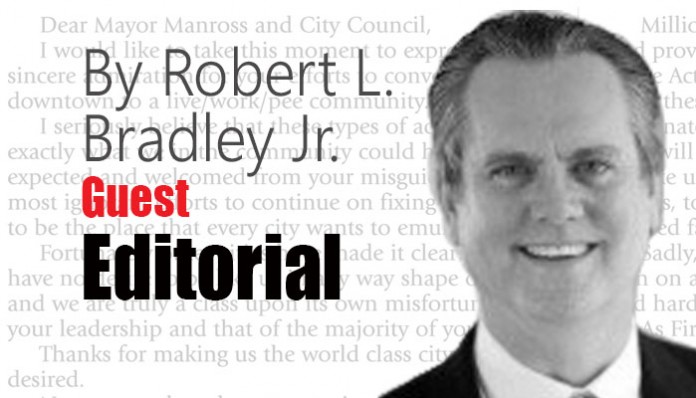Green activists are at war with the greatest American foe since the Axis Powers-or so they say. The latest Democratic Party platform compares the fight against global warming to World War II.
And those opposed to this “war” have been labeled anything from Nazis to Holocaust deniers. (I personally have been called a sociopath by climate activist Joe Romm, another story.)
The upcoming election only increases concerns. Michael Klare, Professor at Hampshire College, stated: “electing green-minded leaders, stopping climate deniers (or ignorers) from capturing high office, and opposing fossil-fueled ultranationalism is the only realistic path to a habitable planet.”
Equating the Nazis with fossil-fuel reliance, and charging Republicans with climate destruction is absurd. Americans care about the future. It is fair that catastrophism critics reject bigger government, tax-wise and regulation-wise.
And obsessing about climate change precludes discussion about budget deficits, federal debt, entitlement reform, and more.
Perhaps there is hopefulness in this desperate activism. Not only do polls suggest the public is unmoved at home and abroad, serial exaggeration at this point is backfiring.
And our side can ask whether the critics are acting like the Gestapo of global warming. Two can play a game that should not be played at all.
Global warming activists tout their commitment to evidence and reason. Yet their dismal track record suggests more hyperbole.
In 2006, Al Gore prophesied a “point of no return” unless we dramatically reduced emissions. Scientist James Hansen stated: “We have at most ten years — not ten years to decide upon action, but ten years to alter fundamentally the trajectory of global greenhouse emissions.”
Time is up, but Gore and Hansen have nary admitted their exaggeration.
Many have followed their scare-and-hide pattern. In the 1980s, the United Nations claimed that if global warming were not checked by 2000, rising sea levels would wash entire counties away.
And in 2009, then-British Prime Minister Gordon Brown predicted that the world had 50 days to save the planet from global warming. But fifty years later, the earth still spins. Falsified scientific exaggerations are ruining the reputation of science itself. Physical science is now profit-maximizing political science. As Judith Curry explained to Congress:
The scientific establishment behind the global warming issue has been drawn into the trap of seriously understating the uncertainties associated with the climate problem. This behavior risks destroying science’s reputation for honesty. It is this objectivity and honesty which gives science a privileged seat at the table. Without this objectivity and honesty, scientists become regarded as another lobbyist group.
Can the “uncertainty monster” in climate research be acknowledged?
There is good news. The discrepancy between model-predicted warming and real-world observations has inspired new respect for natural climate variability relative to greenhouse-gas forcing.
According to a just-published study at Scientific Reports, “it is now accepted that a recent warming deceleration can be clearly observed.”
Sensitivity estimates have been decreasing in academic literature, even to the point when climate economists see a positive externality from human influences on climate.
Such thinking would shift the mainstream to a view of plentiful, affordable and reliable energy. Depletion, security, and pollution fears quieted, natural gas, coal, and oil can be seen in a white light.
“Fossil fuels don’t take a clean environment and make it dirty,” noted Alex Epstein, “they take a dirty environment and make it clean.”
Reality contradicts doom-and-gloom. It’s time for climate planners to lay down their arms. Let consumers and taxpayers be.
Robert L. Bradley, Jr. is the founder and CEO of the Institute for Energy Research.





